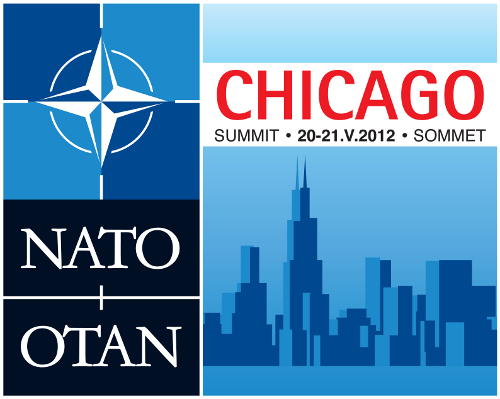
From Barry Pavel and James Joyner, the New Atlanticist: [T]his is no time for routine. The atrocities in Syria are ongoing. Unrest continues to bubble across the Middle East and North Africa. And the threat of an Iran crisis looms, which from its outset would directly involve NATO members in the neighborhood (Turkey) or with forces in the region (United States, Britain).
In light of all this, the Gulf Cooperation Council countries in particular are practically begging NATO to deepen its outside relationships. (NATO also needs to formalize partnerships with Australia and other key Asian players.) At a minimum, NATO must initiate greater outreach regarding air, missile defense, and maritime operations with the United Arab Emirates, Qatar, and other Gulf countries who are interested in operational links to NATO.
At the Chicago summit, the Obama administration can exert leadership to make inroads on areas where consensus is emerging.
Moving ahead on “smart defense” requires an agreement on which capabilities must be maintained by all allies and which can be shared responsibilities, with some providing capabilities that all can rely upon if needed.
On Afghanistan, maintaining Lisbon’s 2014 timeline may no longer be possible, but Chicago should at the very least result in an agreement to follow a NATO timeline, not one set by the domestic politics of individual allies.
On cyber security, allies need to move toward common standards for national cyber assets to ensure continued interoperability. On partnerships, NATO should engage in structured outreach at multiple levels to its Gulf partners who already have joined NATO military operations.
Finally, NATO should formalize the reality made clear by the Libya operation and set forth procedures for “coalitions of the willing” among NATO members to employ alliance command and control assets in the absence of unanimous participation.
If Obama can push NATO on these critical points, and help foster consensus, there is some hope that NATO will remain as relevant to protecting US interests in the 21st century as it was in the last.
Barry Pavel is director of the International Security Program and James Joyner is managing editor of the Atlantic Council. This article originally appeared in The Christian Science Monitor and is part of a series of New Atlanticist pieces on NATO’s 2012 Chicago Summit.
Image: NATO-Chicago-Summit-Logo.jpg
